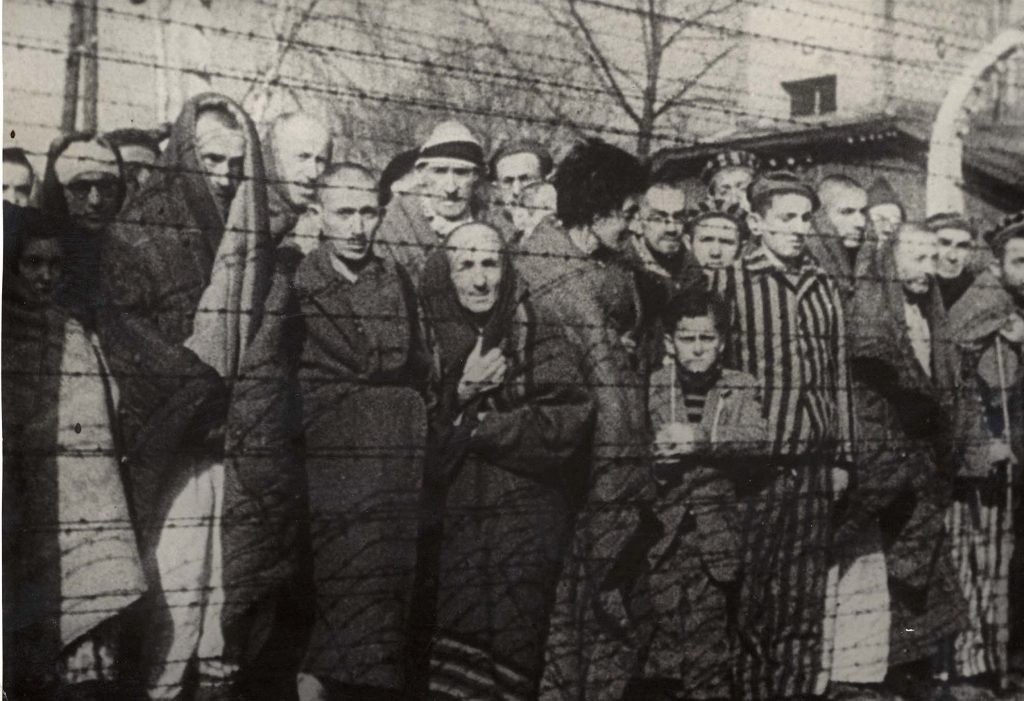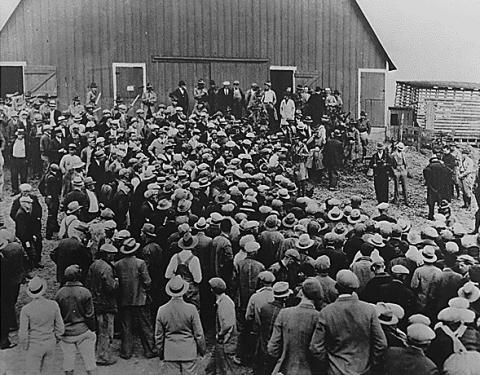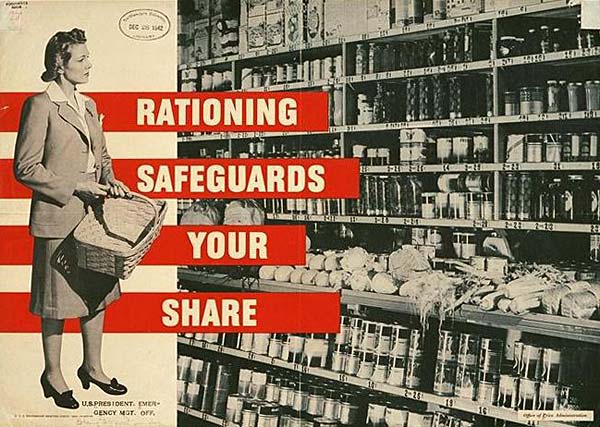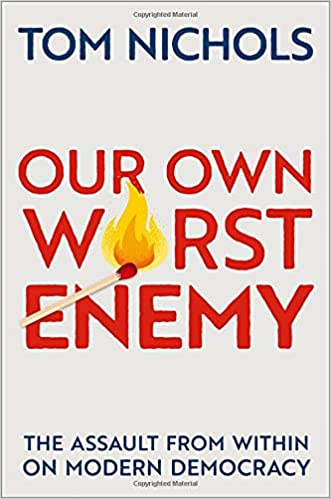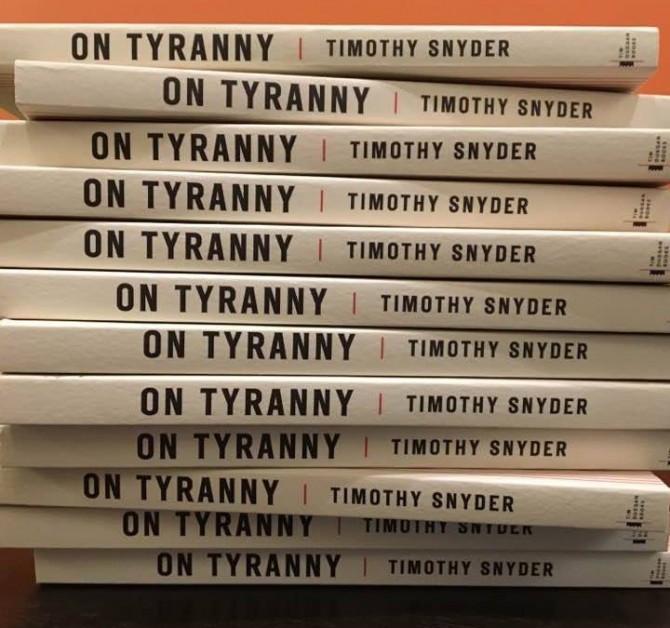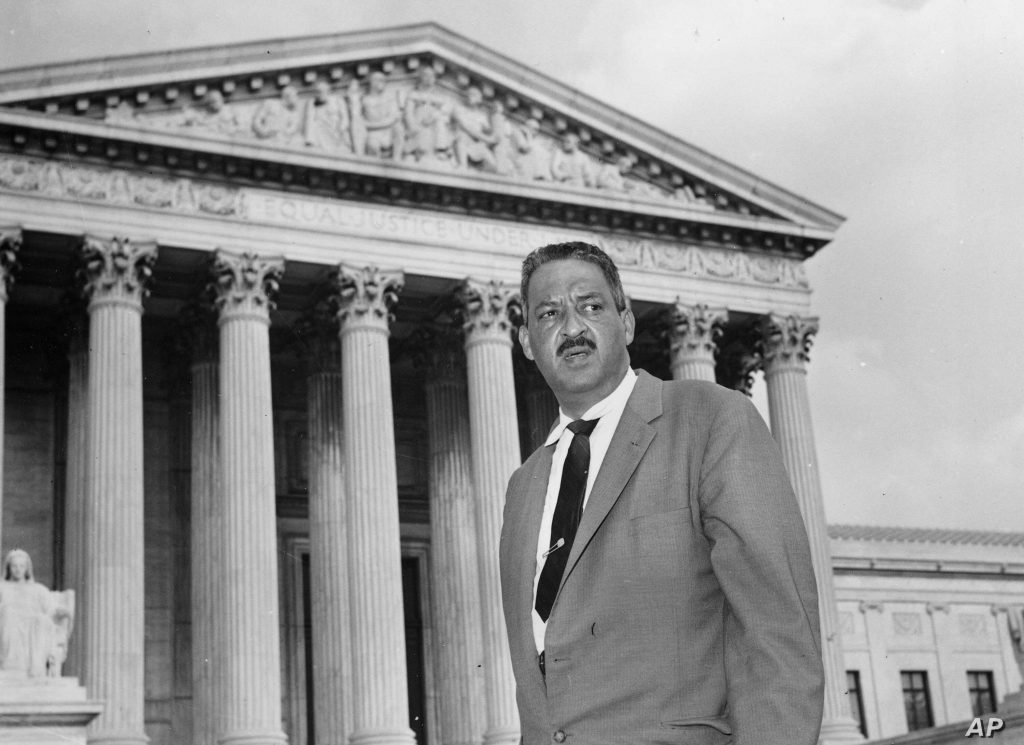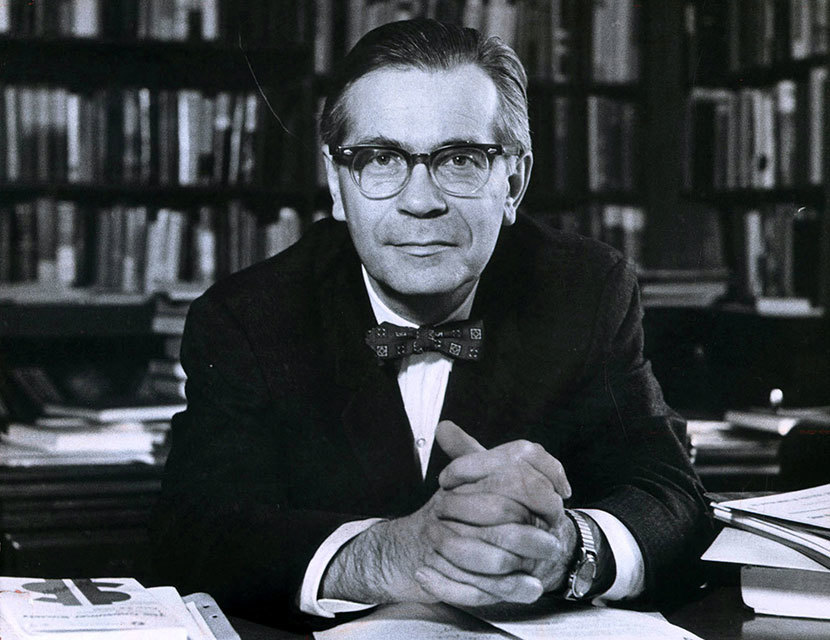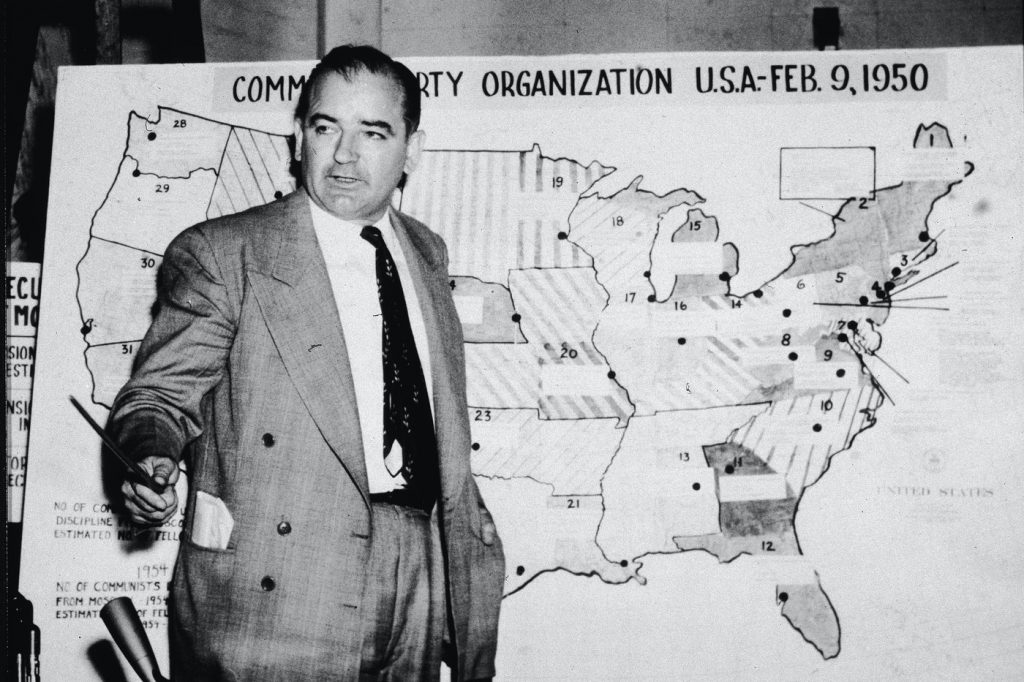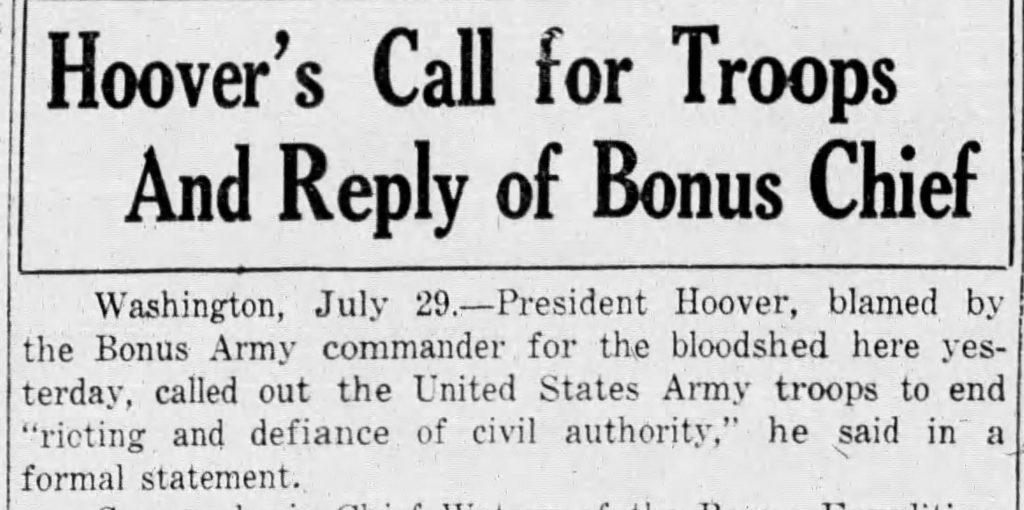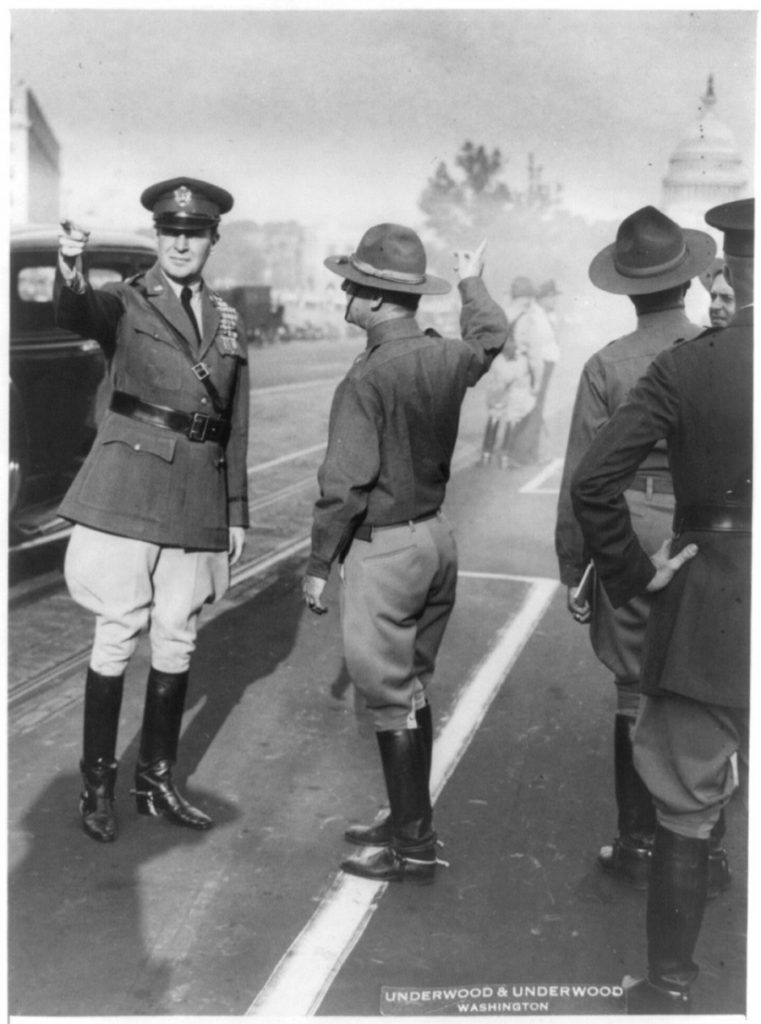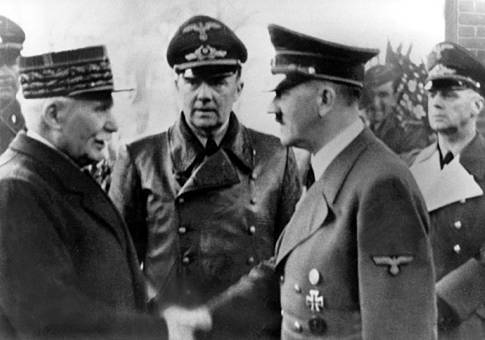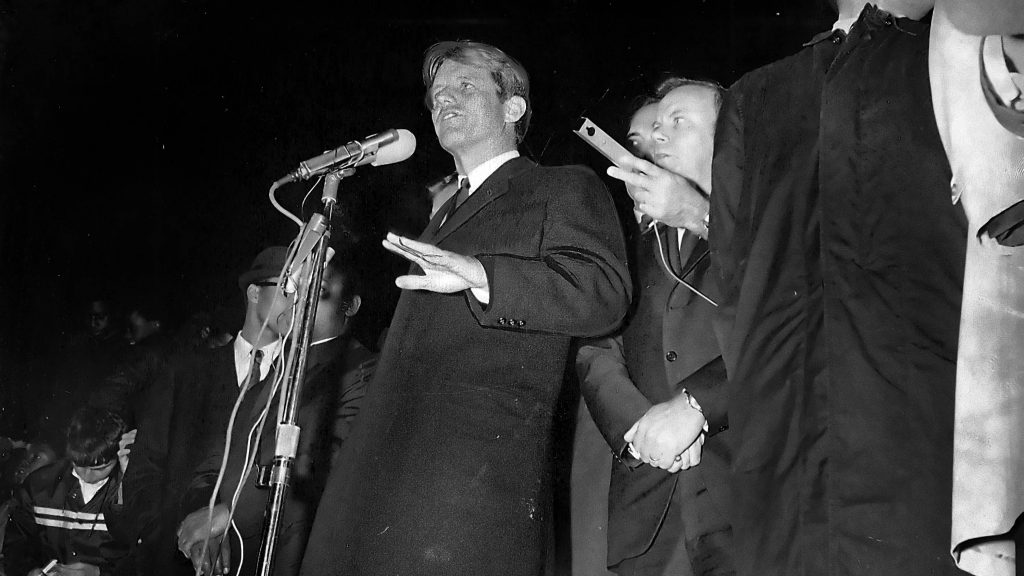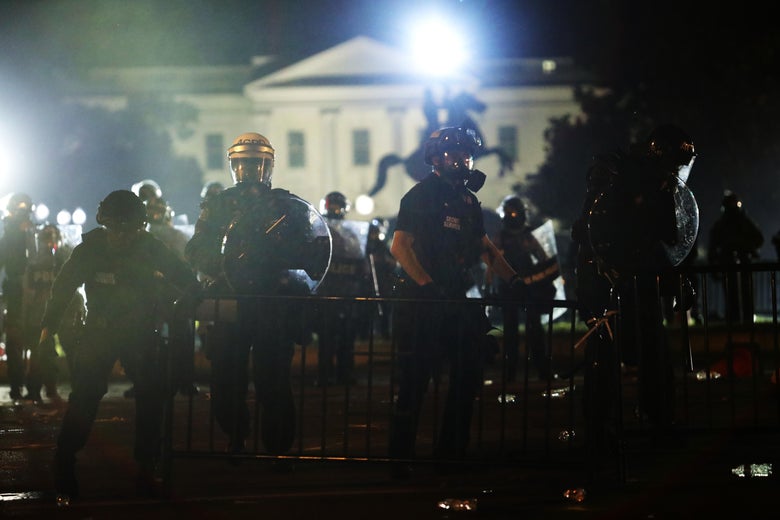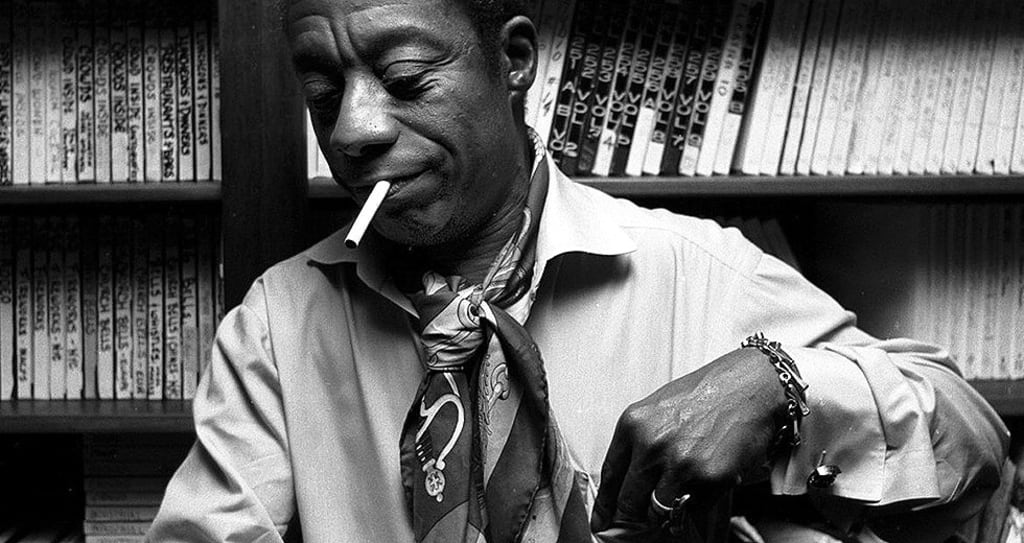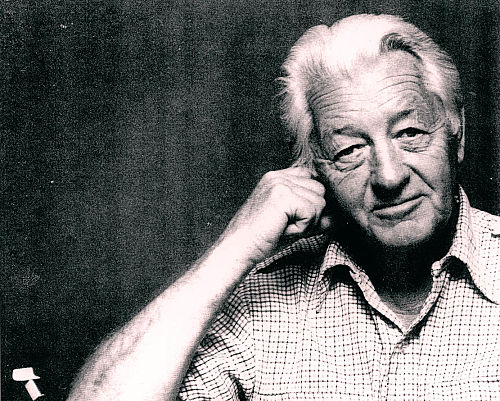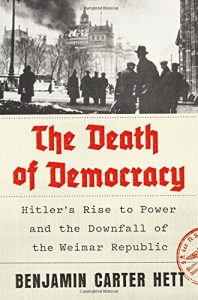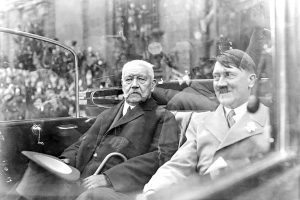The distinguished Canadian historian Margaret MacMillan – she’s most famous for a marvelous book Paris 1919 that deals with the aftermath of World War I – has written that “history is something we all do … we want to make sense of our own lives … so we tell ourselves stories, not always true ones, and we ask questions about ourselves.”
MacMillan wrote that in 2007 in a smart little book entitled Dangerous Games: The Uses and Abuses of History.”It might as well be the handbook for our times.
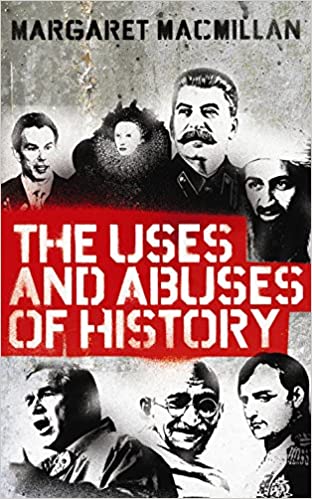
Many Americans, including many on the far right of American conservatism are embracing something like “the end of history.” The very teaching of history with all its manifest contradictions and confusion is under a broad and sustained assault from the far right, which, in some cases seeks to eliminate rather than elevate historical understanding. The evidence is plain and troubling: a systematic deemphasis of teaching history at every level, blatant misrepresentations of historical events and a willful embrace of historically fraudulent characters in our national life (read George Santos).
One of the most Orwellian examples, not surprisingly, involves the crackpots now running the U.S. House of Representatives. As Kevin McCarthy sacrificed what little was left of his soul in order to become speaker of the House earlier this month he made a historically bad deal with many of the same people who helped create the narrative of a stolen election and empower the January 6 attack on the U.S. Capital. Among his many bad bargains, McCarthy agreeing to create a Select Subcommittee on the Weaponization of the Federal Government. The radicals immediately christened this partisan witch hunt a “new Church Committee.”
What unmitigated rubbish.
The original Church Committee, chaired by Idaho senator Frank Church, a profoundly decent, honorable and intelligent public servant, conducted one of the most important and remarkable investigations in congressional history, uncovering and documenting various abuses by the country’s intelligence agencies. The probe began after the investigative reporting of a New York Times reporter, Seymour Hersh, who revealed a CIA domestic spying program, a clear violations of the agency’s charter.
The Church investigation resulted in serious legislation and a permanent commitment to congressional oversight of the CIA. We wouldn’t know a tenth of what we know today about what the intelligence community does in our name had not Church been serious, meticulous and committed to democracy.
That’s the history, that’s the fair and balanced interpretation of what Church’s committee did. To warp that history by equating the seditious Jim Jordan, the hyper partisan, Trump protecting show pony congressman from Ohio, with Frank Church is analogous to comparing a four year old’s finger painting to a Monet masterpiece, with apologies to four year old’s everywhere. Or as Loch Johnson, who worked for Church on that investigation in the late 1970s told the Washington Post, comparing Jordan’s partisan act of performance with one of the most significant congressional investigations in history “is really an absurd comparison.”
Jordan’s real aim, aided and abetted by McCarthy, is to, as Greg Sargent wrote, “harass and undermine criminal investigations of Trump and even prosecutions of rioters” who attacked the Capitol looking to harm Mike Pence and Nancy Pelosi.

Where this “new Church Committee” application of historical analogy really goes off the rails is to remember that for years conservatives smeared Church and his investigation for allegedly doing vast damage to the CIA. But the true damage done was to the country and its ideals when administrations of both parties tolerated or encouraged assassination plots against foreign leaders, domestic surveillance of political activists like Dr. Martin Luther King, Jr. and even opening the mail of Church and fellow committee member Howard Baker, the Republican senator from Tennessee who served on Church’s committee.
The Idaho senator, in other words, was a conservative pariah before he became a role model, historically appropriated by a collection of clowns and fakers whose intent is not to legislate, but to lacerate political opponents.
The radical right’s efforts to downplay the Capitol insurrection by discrediting the history of that awful, unprecedented day is, of course, about protecting Trump and people like Jordan, but it’s also propaganda and about power. They want you to forget or at least be confused about what happened. I mean, who you gonna believe, Jim Jordan or you’re lyin’ eyes?
The radical right’s mindless fixation on “woke” history, Critical Race Theory and books that “offend” delicate snowflakes is also part of the “end of history.” As anti-Semitism spikes they resist education about the Holocaust. As conservative voter suppression efforts in places like Milwaukee, a city with a large Black population, drive down minority participation in elections they demand an end to history that informs about the country’s original sin of slavery, the bitter historical legacy of America that haunts our country.
History, as one scholar put it, “is not facts, but interpretation of the record of the past,” and the interpretation must be honest. It must be fair. And it must not be abused.
Do yourself a favor. Read some good history by Margaret MacMillan, by World War II historians Max Hastings or Richard Evans or Rick Atkinson. Read political biographies of the Roosevelts, Churchill, Kennedy, Eisenhower, Truman and Reagan. Read about the Great Depression. Read about Nazi Germany and Stalinist Russia. Subscribe to the widely available work of scrupulous historians like Heather Cox Richardson, the Boston College scholar whose voluminous daily output puts people like Jordan and Trump in context.
Be skeptical. Consider the sources. Read separate accounts of the same events and weigh the evidence. But don’t, for goodness sakes, act like none of it matters unless it confirms comfortably with your own bias.
Historian MacMillan quotes the journalist and historian David Halberstam from the last piece he wrote before his untimely death. “It is a story from the past that we must read again and again, that the most dangerous time for any nation may be that moment in history when things are going unusually well, because it’s leaders become carried away with hubris and a sense of entitlement cloaked as rectitude.”
“The past can be used for almost anything you want to do in the present,” MacMillan has written, but that isn’t history. It’s propaganda meant to control and conform.
A great commentator on the present state of America, Jon Stewart, said it well. “We cannot mistake absurdity for lack of danger because it takes people with no shame to do shameful things.”
Now, that is a lesson from history.
—–0—–
Additional Reading:
My carefully curated list of weekend reading …
Montana, just say when …

My friend Darryl Erlick edits a terrific Montana news site – The Daily Montanan. He is also a fine writer with a keen eye for political nonsense.
Darryl recently skewered some of the state’s Republicans for stuff that once upon a time no self-respecting Montanan would have tolerated for a Butte second.
“We’re becoming a caricature of some low-budget western film where we wear big hats on television, talk real tough in speeches, fight against American Indians, regard ourselves as the authority, and fight with our neighbors about what they may be doing in their home.”
It’s good. Read the whole thing:
Bernard Kalb, longtime foreign affairs newsman, dies at 100
I grew up consuming the journalism of Marvin and Bernard Kalb, brothers who had both the experience and style to make foreign affairs reporting really important.
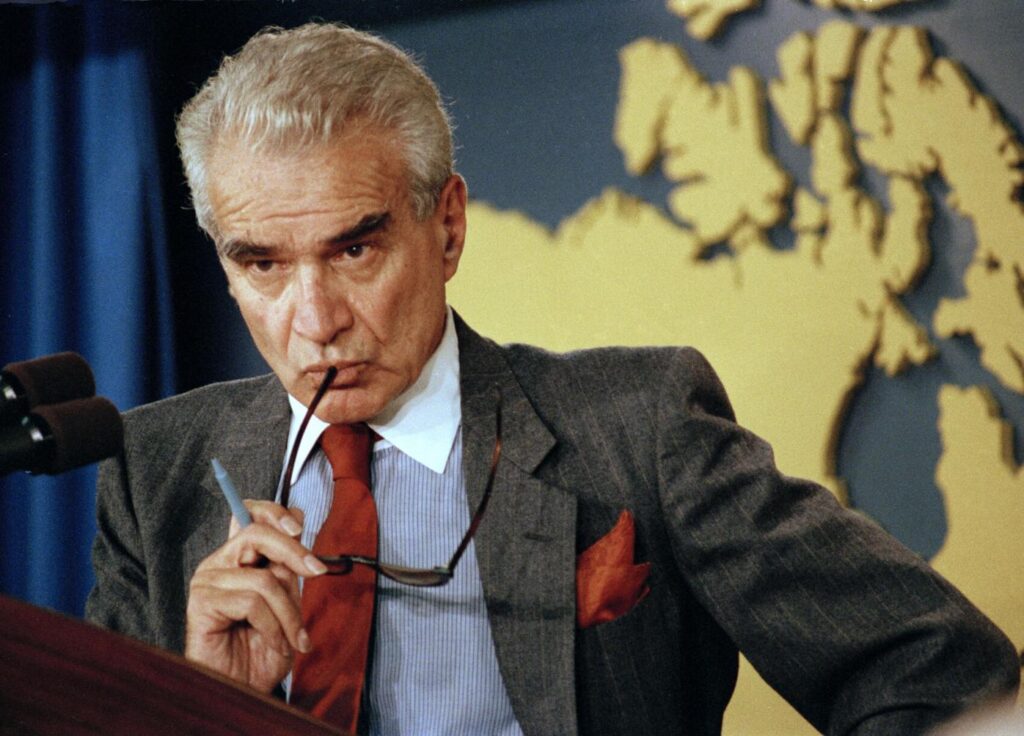
“Bernard Kalb worked as a foreign correspondent for The New York Times, CBS and NBC, wrote two books with his more famous younger brother, and served as founding anchor and panelist for the CNN media analysis show ‘Reliable Sources.'”
What a career. Story here:
The Great Forgetting
Fascinating and frightening piece.
“In 2022, double heat waves hit the Arctic and Antarctic, temperatures soaring close to 40 degrees Celsius higher than usual. The Conger ice shelf in East Antarctica said its final farewell following this heat wave. West Antarctica has long been considered the more vulnerable to near-term ice shelf loss, but now, even the East is starting to show its fray. Heat makes easy work of forgetting.”
Legendary Paris Restaurants That Live Up to the Hype
I’ve been fortunate to visit a couple of these places. After reading this I want to go back. From Food and Wine.
“We’ve put together a list of the most iconic places to eat in the City of Lights. Don’t worry if you can’t hit all of these Paris restaurants in one visit; keep this gallery handy for upcoming jaunts over the pond. Because as Audrey Hepburn famously said: Paris is always a good idea.”
Good to read with a early evening cocktail in hand.
Have a good weekend. Thanks for following along. All the best.

